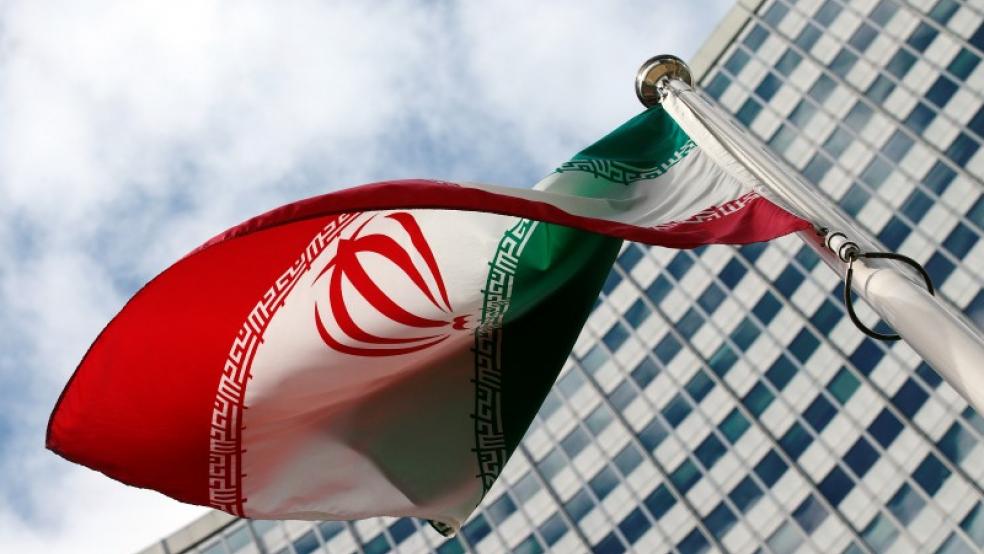If you’re hoping that the New Year ushers in a new, more resolute foreign policy from the Obama White House, you’re out of luck. As the calendar flips to 2016, Obama’s crack team is determined to dither.
In response to Iran’s latest provocations – the firing two ballistic test missiles in contravention of U.N. resolutions and the launching of “unguided rockets” close to U.S. warships in the Persian Gulf -- President Obama came this close to a forceful response, only to falter once again in the red zone. Obama’s foreign policy is like New York Giants football – commanding the lead until the last two minutes, only to slink home in defeat.
The White House alerted Congress just a few days ago that it planned new sanctions against 11 individuals and entities from Iran, Hong Kong and the UAE involved in Tehran’s illegal ballistic missile program. But, the Obama administration almost immediately backed off the plan, after it was denounced by Iranian officials as a violation of the nuclear deal. It is, of course, no such thing. According to U.S. Treasury officials, under the nuke deal the U.S. retained the right to impose sanctions on organizations or people tied to Tehran’s missile development or on entities perpetrating international terrorism.
Related: Why the US Wants New Sanctions Against Iran
Iran’s president Hassan Rouhani countered the threatened sanctions by calling for his Defense Ministry to “quickly and firmly continue with its plans to produce different missiles….” Defense Minister Hossein Dehghan piled on, announcing his intention to make Iran’s missiles even more powerful, claiming that “peace and security can only be achieved by strength” – a viewpoint many wish the Obama administration would adopt.
The bluster apparently stopped the White House in its tracks. No surprise there. Neither in the negotiation of the nuclear agreement, nor in the aftermath, has President Obama and his team showed any spine in confronting Tehran’s bellicose mullahs. Not only did John Kerry et al fail to recover American hostages held by Tehran – an almost unimaginable lapse – they also failed to secure even a single gesture of goodwill towards the U.S.
Apologists for Obama’s weak-kneed dealings with Tehran are quick to cite President Hassan Rouhani’s need to stand up to the U.S. to appease right-wing factions in his country. We have repeatedly been told that Rouhani pushed for the nuclear deal, and wants better relations with the U.S. In numerous arenas, we have put concern for Mr. Rouhani’s political standing ahead of our self-interest. That was especially true in concluding the nuclear deal, which Donald Trump has called “one of the worst-negotiated transactions I’ve ever seen in my life.”
Related: Rouhani Expands Iran's Missile Program Despite U.S. Sanctions Threat
Among the accord’s several shortcomings is that it contains no effort to restrain Iran’s missile program, which was outlawed by the U.N. Security Council and which alarms analysts convinced Tehran wants the capability of delivering of nuclear warheads. The U.N. passed five resolutions between 2006 and 2010 trying to thwart this ambition.
Tehran refused to make limits on its missile program part of the nuclear accord; the supreme leader Ayatollah Ali Khamenei denounced that possibility as “stupid and idiotic.” When the Joint Comprehensive Plan was announced by leaders of the P5+1 nations, there was no mention of any oversight of Iran’s missile program. That omission contradicted a State Department fact sheet about the agreement which promised that the final accord would include “important restrictions on conventional arms and ballistic missiles.” Iran’s foreign minister Zarif described the fact sheet as an attempt by the Obama White House to “spin” the just-signed deal. It seems he was correct.
The sanctions under consideration by the White House would be allowed under U.N. resolution 1929 passed in 2010, which says that “States shall take all necessary measures to prevent the transfer of technology or technical assistance to Iran related to such activities,” referring to its ballistic missile program. Targeted are Iranian individuals who work for the Ministry of Defense for Armed Forces Logistics, as well as an Abu Dhabi firm and its Hong Kong affiliate charged with providing key materiel to the weapons effort.
The threatened White House sanctions reflect concerns that Iran is collaborating with rogue nuclear state North Korea to procure components for its ballistic missile program.
Related: White House Delays Imposing New Sanctions on Iran
These are serious developments, but the White House will not treat them seriously for fear of undermining Obama’s legacy nuclear accord with Iran. Pursuant to that deal, Iran recently delivered 25,000 pounds of enriched uranium to Russia. That step was a precursor to Tehran receiving tens of billions of dollars in sanctions relief – money desperately needed by a country dependent on sinking oil revenues. The budget deficit in Iran is likely to be the worst in 37 years as the economy continues to falter.
Yet, Tehran bullies the West--and especially the U.S. President Obama seems not to understand or to care that the nuclear deal is far more important to Iran than it is to the U.S. But then, chasing his legacy has always been the top priority for this president.






